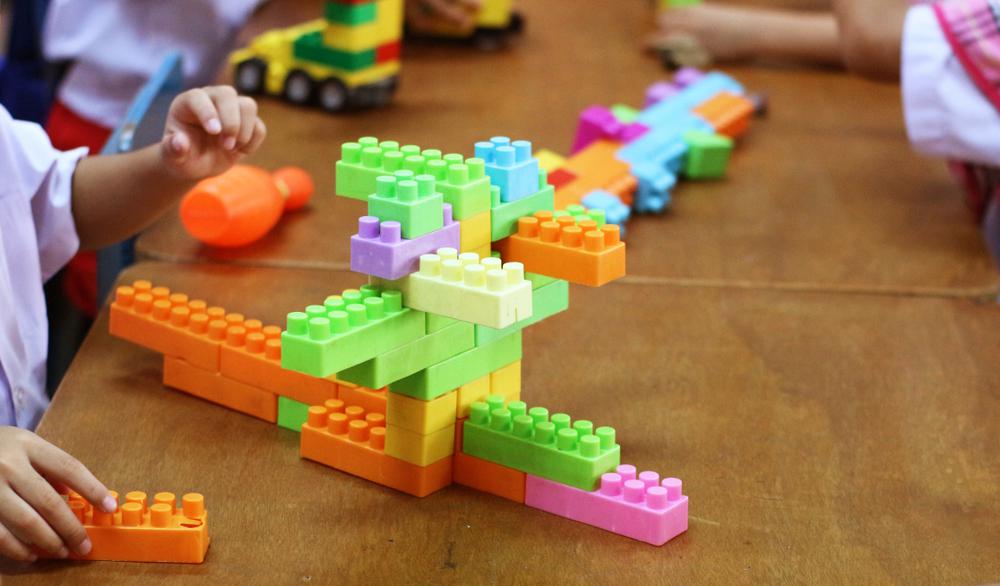Understanding citizenship Social Studies Worksheets for Ages 3-5
4 filtered results
-
From - To
Introducing our "Understanding Citizenship Social Studies Worksheets" designed specifically for ages 3-5! These engaging worksheets teach young learners the fundamental concepts of citizenship in a fun and accessible way. Through colorful illustrations and age-appropriate activities, children will explore topics such as community roles, basic rights and responsibilities, and the importance of being active participants in their environment. Each worksheet is crafted to promote critical thinking and discussions, helping kids understand their place in the world. Perfect for home or classroom use, these resources will foster a sense of belonging and inspire future generations of responsible citizens. Explore, learn, and grow!
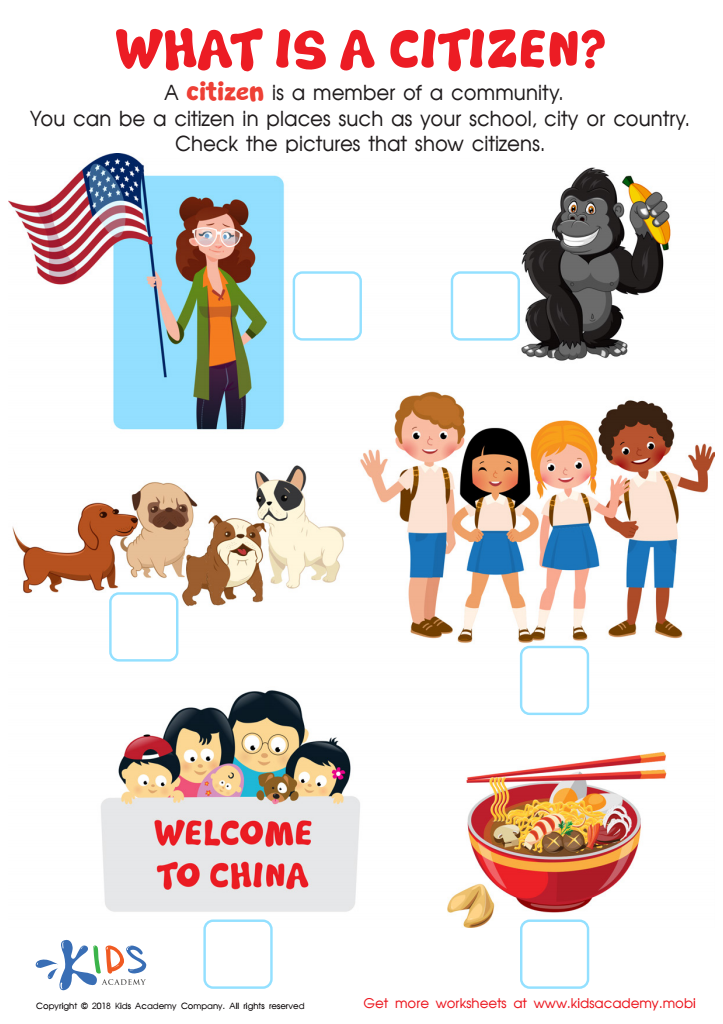

What is a Citizen? Worksheet
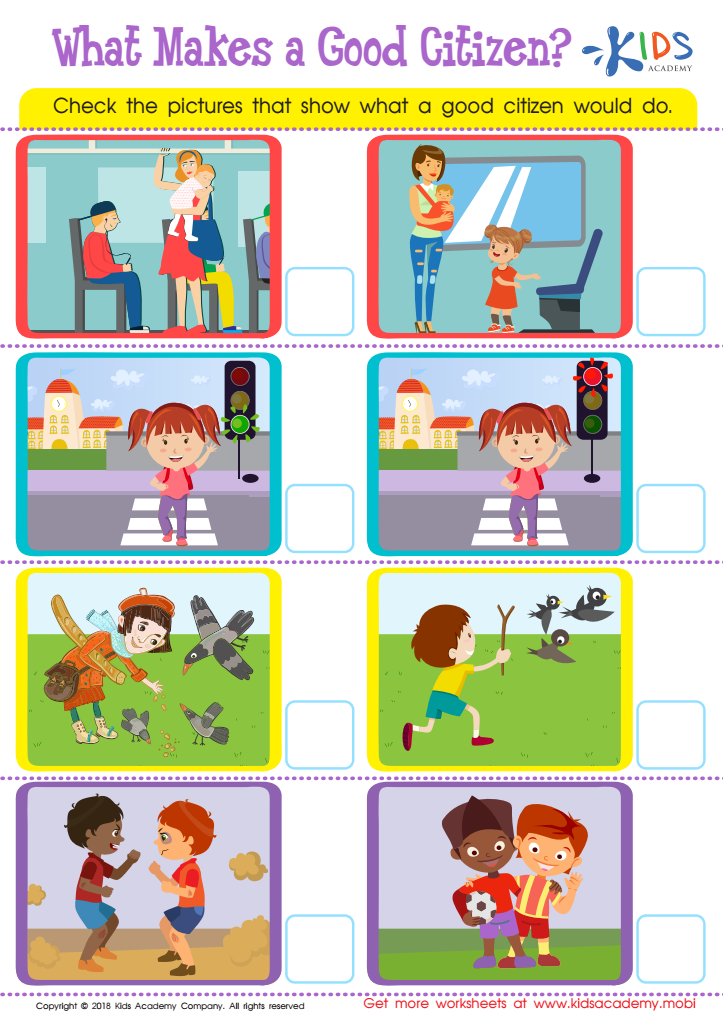

What Makes a Good Citizen? Worksheet
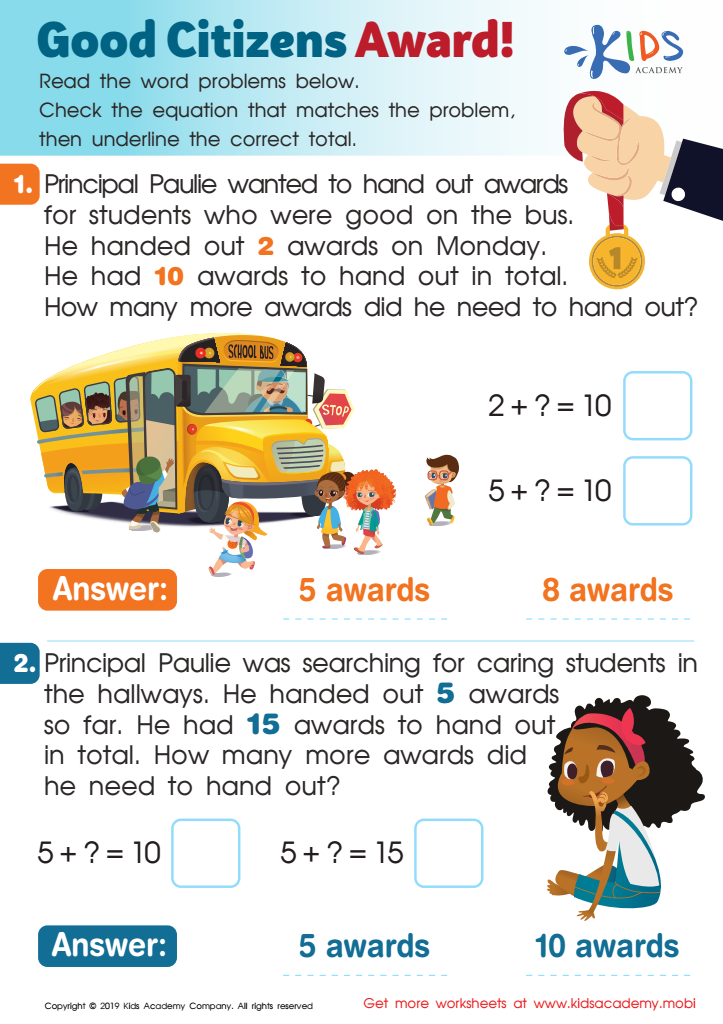

Good Citizens Award! Worksheet
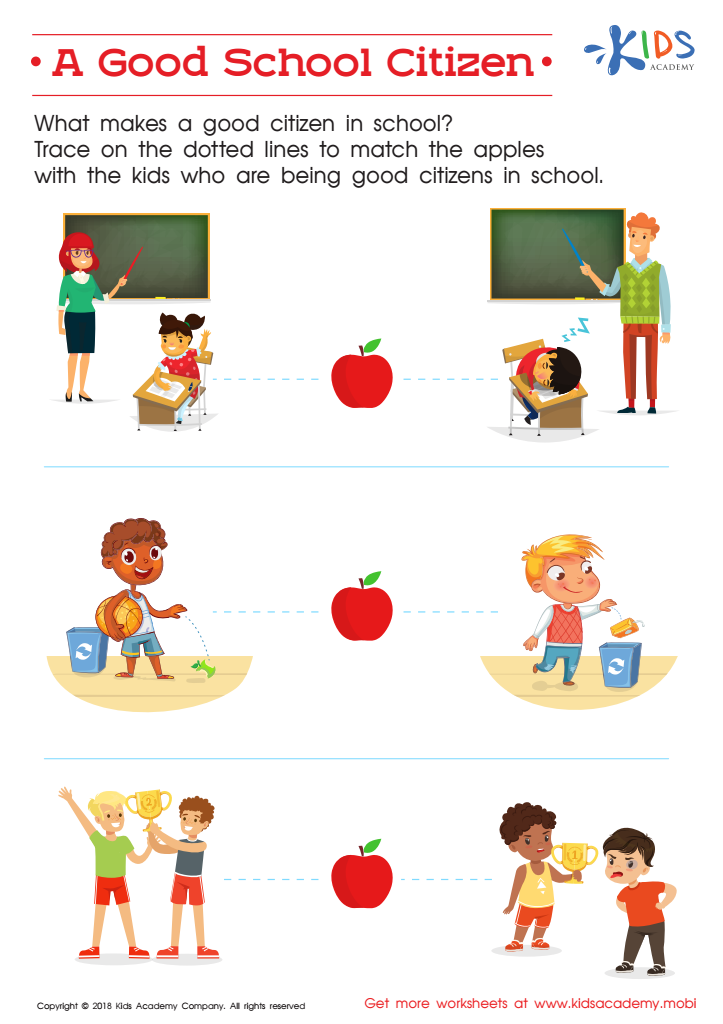

A Good School Citizen Worksheet
Understanding citizenship and social studies at an early age is crucial for the holistic development of children aged 3-5. During these formative years, children begin to explore their identity, develop relationships, and understand their role within families and communities. Introducing the concepts of citizenship, such as respect, responsibility, and community involvement, fosters fundamental social skills essential for their future interactions.
Parents and teachers play a key role in nurturing these understandings. Engaging young children in discussions about values such as sharing, empathy, and fairness helps cultivate a sense of belonging and mutual respect. Activities that encourage cooperation and teamwork not only promote these values but also enhance critical thinking and communication skills.
When children learn about social studies concepts, they gain a foundation for civic awareness, establishing a path for informed citizenship in the future. Crafting simple stories, role-playing community scenarios, and involving them in local events can make these lessons relatable and fun. The emphasis on active participation in their social environment can lead to kindness, inclusivity, and active civic engagement in later years. Ultimately, early education in citizenship equips children with the tools necessary to be thoughtful, responsible members of society.

 Assign to My Students
Assign to My Students



